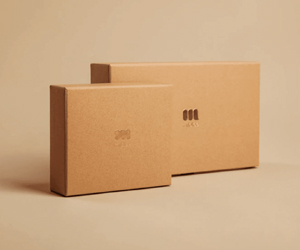
Cardboard Boxes: The Versatile Packaging Solution for Every Industry
- Aug 21, 2024
- | 17
Cardboard boxes have long been the cornerstone of packaging across industries. Their versatility, durability, and cost-effectiveness make them the go-to choice for shipping, storage, and retail packaging. From small businesses to global corporations, cardboard boxes play a crucial role in ensuring products are protected, transported, and presented in a manner that meets both functional and aesthetic needs. In this article, we delve into the various types of cardboard boxes, their benefits, and the key factors to consider when choosing the right box for your needs.
What Are Cardboard Boxes?
Cardboard boxes are containers made from paper-based materials that are sturdy enough to hold and protect items during transit or storage. They are typically made from corrugated fiberboard, which consists of a fluted corrugated sheet sandwiched between two flat linerboards. This design provides strength and rigidity, making cardboard boxes suitable for a wide range of applications.
Types of Cardboard Boxes
1. Corrugated Boxes
Corrugated boxes are the most common type of cardboard boxes and are widely used for shipping and storage. They are made from multiple layers of paperboard, with a fluted layer in between that provides cushioning and protection. Corrugated boxes are available in various thicknesses, depending on the weight and fragility of the items they need to protect. They are used for everything from electronics and appliances to food and beverages.
2. Rigid Boxes
Rigid boxes, also known as set-up boxes, are made from thicker paperboard and do not fold or collapse like regular cardboard boxes. These boxes are often used for luxury packaging, such as high-end electronics, jewelry, and gift items. The durability and premium appearance of rigid boxes make them ideal for products that require a high-quality presentation.
3. Folding Cartons
Folding cartons are lightweight and typically used for retail packaging. These boxes are made from paperboard and can be easily folded flat when not in use. They are commonly used for packaging consumer goods such as cereal, cosmetics, and pharmaceuticals. Folding cartons are often printed with branding and product information, making them an essential part of the product’s marketing strategy.
4. Mailer Boxes
Mailer boxes are a popular choice for e-commerce businesses due to their self-locking design and ease of use. These boxes are made from corrugated cardboard and are designed to protect products during shipping without the need for additional packaging materials. Mailer boxes are often used for subscription boxes, online orders, and promotional kits.
5. Custom Cardboard Boxes
Custom cardboard boxes are tailored to meet specific packaging needs. Businesses can choose the size, shape, material, and design of their boxes to match their products and brand identity. Custom boxes are especially useful for products with unique dimensions or for businesses looking to create a memorable unboxing experience.
Benefits of Cardboard Boxes
1. Cost-Effective
Cardboard boxes are an affordable packaging solution, making them ideal for businesses of all sizes. The cost-effectiveness of cardboard boxes is due to their widespread availability, ease of production, and recyclable nature. Even with customizations such as printing and special coatings, cardboard remains an economical choice.
2. Versatile and Customizable
The versatility of cardboard boxes is unmatched. They can be designed in various shapes, sizes, and styles to accommodate different products and packaging requirements. Additionally, cardboard boxes can be customized with printing, embossing, and coatings to enhance branding and create a unique customer experience.
3. Durable and Protective
Cardboard boxes, especially corrugated ones, offer excellent protection for products. The multiple layers of paperboard provide cushioning that absorbs shocks and prevents damage during transit. This durability makes cardboard boxes suitable for both heavy and delicate items.
4. Eco-Friendly
Cardboard boxes are one of the most eco-friendly packaging options available. They are made from renewable resources and are 100% recyclable. Many cardboard boxes are also made from recycled materials, further reducing their environmental impact. Businesses that prioritize sustainability often choose cardboard boxes to align with their green initiatives.
5. Lightweight and Easy to Handle
Despite their strength, cardboard boxes are lightweight, which reduces shipping costs and makes them easy to handle. Their lightweight nature also makes them suitable for a wide range of industries, from retail to logistics.
Applications of Cardboard Boxes
1. Shipping and Logistics
Cardboard boxes are the backbone of the shipping and logistics industry. They are used to package and transport goods across the globe, ensuring that products arrive safely at their destination. The strength and durability of corrugated boxes make them ideal for long-distance shipping, while their lightweight design helps keep shipping costs down.
2. Retail Packaging
In the retail sector, cardboard boxes are used for product packaging and display. Folding cartons and rigid boxes are particularly popular for retail packaging, as they can be easily branded and customized to enhance product visibility and appeal. From food items to electronics, cardboard boxes are a staple in retail environments.
3. E-commerce and Subscription Boxes
With the rise of e-commerce, cardboard boxes have become essential for online retailers. Mailer boxes are widely used for shipping products directly to customers, while custom cardboard boxes are often used for subscription services. The ability to design and print on cardboard boxes allows businesses to create a branded unboxing experience that delights customers.
4. Moving and Storage
Cardboard boxes are the go-to solution for moving and storage. Their ability to hold and protect a wide variety of items makes them indispensable for packing household goods, office supplies, and personal belongings. The availability of different sizes ensures that there’s a cardboard box suitable for every need.
Choosing the Right Cardboard Box for Your Needs
When selecting cardboard boxes for your business, it’s important to consider the following factors:
1. Product Requirements
The size, weight, and fragility of your product will determine the type of cardboard box you need. For heavy or delicate items, choose corrugated boxes with thicker walls for added protection. For lighter products, folding cartons or mailer boxes may be sufficient.
2. Branding and Customization
If branding is a priority, consider customizing your box with printing, colors, and finishes. This is particularly important for retail packaging and e-commerce, where the packaging is part of the customer experience. Custom boxes can also include features such as handles, windows, or dividers for added functionality.
3. Environmental Impact
For businesses committed to sustainability, choosing recyclable or biodegradable cardboard boxes is essential. Look for suppliers that offer eco-friendly options, such as boxes made from recycled materials or those certified by environmental organizations.
4. Budget and Volume
Consider your budget and the volume of boxes you need. While cardboard boxes are cost-effective, purchasing in bulk can lead to significant savings. For businesses with high packaging needs, working with a reliable supplier who can meet your demand is crucial.
Conclusion
Cardboard boxes are an indispensable packaging solution for businesses across industries. Their versatility, durability, and eco-friendliness make them the preferred choice for everything from shipping and storage to retail and e-commerce. By understanding the different types of cardboard boxes and their applications, you can select the right packaging to meet your specific needs and enhance your brand’s image.





